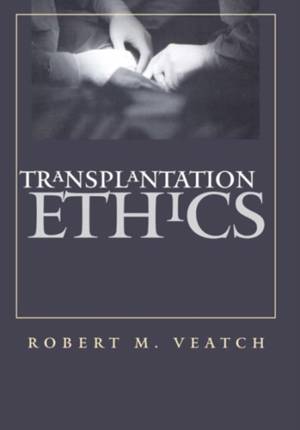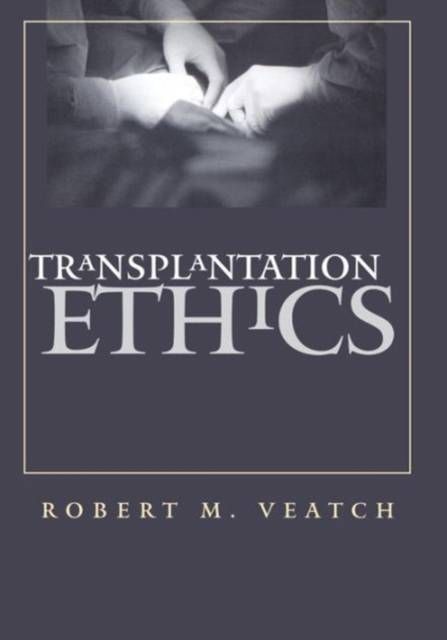
- Afhalen na 1 uur in een winkel met voorraad
- Gratis thuislevering in België vanaf € 30
- Ruim aanbod met 7 miljoen producten
- Afhalen na 1 uur in een winkel met voorraad
- Gratis thuislevering in België vanaf € 30
- Ruim aanbod met 7 miljoen producten
Omschrijving
Three decades after the first heart transplant surgery stunned the world, organs including eyes, lungs, livers, kidneys, and hearts are transplanted every day. But despite its increasingly routine nature-or perhaps because of it-transplantation offers enormous ethical challenges. A medical ethicist who has been involved in the organ transplant debate for many years, Robert M. Veatch explores a variety of questions that continue to vex the transplantation community, offering his own solutions in many cases.
Ranging from the most fundamental questions to recently emerging issues, Transplantation Ethics is the first complete and systematic account of the ethical and policy controversies surrounding organ transplants. Veatch structures his discussion around three major topics: the definition of death, the procurement of organs, and the allocation of organs. He lobbies for an allocation system-administered by nonphysicians-that considers both efficiency and equity, that takes into consideration the patient's age and previous transplant history, and that operates on a national rather than a regional level.
Rich with case studies and written in an accessible style, this comprehensive reference is intended for a broad cross section of people interested in the ethics of transplantation from either the medical or public policy perspective: patients and their relatives, transplantation professionals, other health care professionals and administrators, social workers, members of organ procurement organizations, and government officials involved in the regulation of transplants.
Specificaties
Betrokkenen
- Auteur(s):
- Uitgeverij:
Inhoud
- Aantal bladzijden:
- 448
- Taal:
- Engels
Eigenschappen
- Productcode (EAN):
- 9780878408122
- Verschijningsdatum:
- 4/01/2002
- Uitvoering:
- Paperback
- Formaat:
- Trade paperback (VS)
- Afmetingen:
- 178 mm x 257 mm
- Gewicht:
- 793 g

Alleen bij Standaard Boekhandel
Beoordelingen
We publiceren alleen reviews die voldoen aan de voorwaarden voor reviews. Bekijk onze voorwaarden voor reviews.











